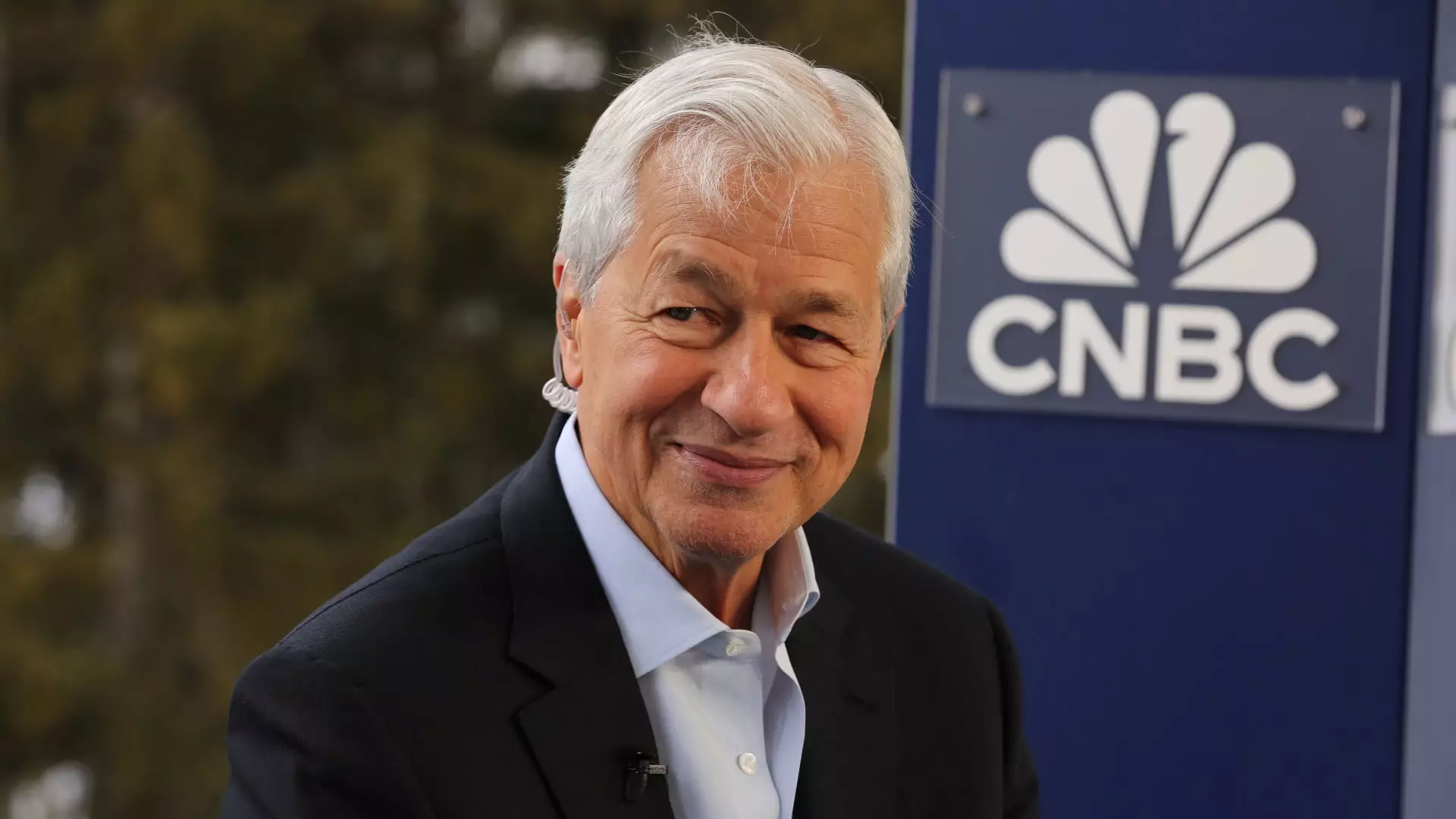In light of rising tariff discussions involving the United States, particularly under the leadership of President Donald Trump, pivotal voices from the financial sector have emerged to weigh in on the implications of these economic measures. Notably, Jamie Dimon, CEO of JPMorgan Chase, shed light on how tariffs could serve as a strategic tool for enhancing national interests. This perspective, however, does not come without its share of controversy and potential backlash.
Dimon’s comments, made during an interview at the World Economic Forum in Davos, Switzerland, suggest that while tariffs can indeed pose risks, they can also foster the kind of trade negotiations that serve American interests better than existing agreements. By leveraging tariffs effectively, Dimon posits that these economic tools can act more as shields against unfavorable trade practices than as mere punitive measures. The broader implications of such strategies call for a nuanced understanding of economic levers and national security concerns.
The consequences of tariffs on global markets cannot be understated. With fears that a trade war could escalate and contribute to domestic inflation, investors have begun to reassess their strategies. Although Dimon acknowledges inflationary pressures that tariffs may introduce, he implies that national security could take precedence over traditional economic metrics. This sentiment poses a critical question: to what extent are policymakers willing to trade short-term economic stability for long-term strategic advantages?
Moreover, Dimon’s remarks serve as a mirror to the sentiments of other leaders in financial sectors, such as Goldman Sachs’ CEO, David Solomon. Both executives resonate with the idea that the ongoing shifts in trade policy may ultimately lead to constructive outcomes for U.S. economic performance. The notion of “rebalancing” trade agreements points to a broader recognition of the need to adapt to the fast-changing global landscape. However, it’s crucial that policymakers approach this transition thoughtfully, as hasty decisions could harm the very economy they aim to protect.
A significant aspect of the current tariff narrative is the ongoing trade deficits faced by the United States, particularly with the European Union, where a $214 billion deficit loomed as of late 2024. These alarming figures catalyzed Trump’s renewed focus on tariffs, expanding potential duties to allies such as Mexico and Canada, and even targeting larger economies like China. The proposed implementation of tariffs—potentially starting at 10% for China and 25% for Canada and Mexico—raises essential considerations about the fairness and effectiveness of such policies.
Critics of tariffs argue they can disrupt supply chains and lead to higher costs for consumers, ultimately undermining the intended benefits of these measures. As businesses brace for these potential changes, the ambiguity surrounding specific tariff applications remains a point of contention. The crux of the matter lies in how these tariffs will be executed—whether as tools for negotiation or simply punitive measures that could provoke retaliatory actions from trading partners.
Strategic Dialogue versus Economic Warfare
The dialogue around tariffs extends beyond mere economics; it touches on the fabric of international relations and diplomacy. Dimon’s assertion that tariffs are “an economic weapon” suggests a calling for strategic dialogue in place of economic warfare. If tariffs are to serve their intended purpose, there needs to be a clear and coordinated strategy that transcends mere fiscal metrics.
Both Dimon and Solomon stress the importance of thoughtful implementation, hinting that the efficacy of tariffs may hinge on broader diplomatic engagements. As financial leaders advocate for a rebalancing of trade agreements, they acknowledge the need for a tactical approach that promotes dialogue over discord. By ensuring that tariffs do not morph into instruments of economic isolation, the United States could potentially redefine its role in a transitioning global economic environment.
The ongoing discussions surrounding tariffs reflect a delicate balance between fostering national interests and maintaining healthy international relations. While financial leaders like Jamie Dimon provide insights into the potential benefits of tariffs when employed judiciously, the broader implications of such measures will require careful analysis and strategic foresight. As geopolitical landscapes shift, understanding how to navigate these turbulent waters will be paramount not only for policymakers but also for businesses operating within an increasingly complex global trade framework.

